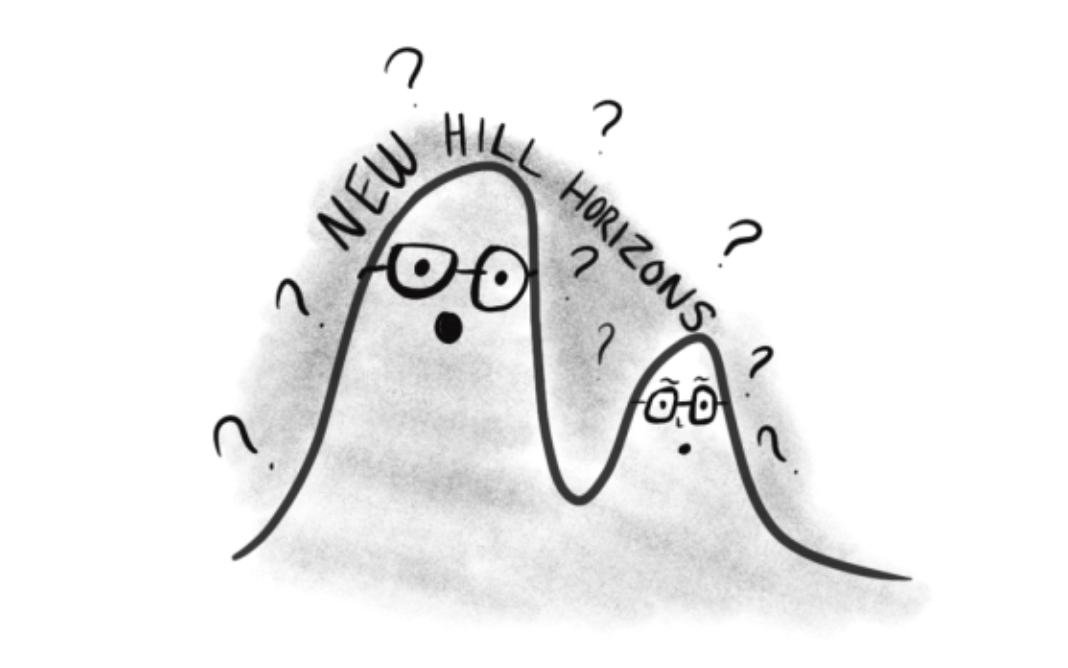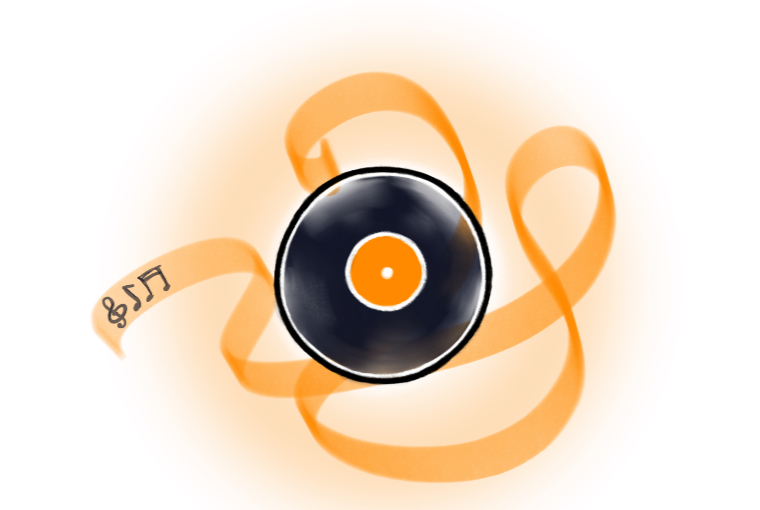The wait is finally over. Adele is back. On Nov. 19, 2021, the 33-year-old released “30,” her fourth studio album. Each track stands alone as a unique musical masterpiece, and the compilation as a whole reflects on Adele’s recent divorce, as well as its intersectional themes of motherhood, longing, and hope.
The album opens with “Strangers by Nature,” a dazzlingly eerie overture that bursts and swells with strings, complex vocal harmonies, and chilling lyrics that instantly establish a hauntingly beautiful energy. “I’ll be taking flowers to the cemetery of my heart,” Adele leads.
Up next on the tracklist is “Easy On Me,” the album’s lead single, which was released about a month prior to the rest of “30.” It’s a trademark Adele piano ballad that doesn’t disappoint. The lead vocal track rings loud and true as the singer ambles through a song exploring her complicated post-divorce feelings.
Backed by a soft electronic beat and braided with snippets of conversation between Adele and her 9-year-old son, Angelo, “My Little love” is the track in which the star is the most emotionally vulnerable. The lyrics serve as Adele’s attempt at an explanation of her divorce to her son. The song’s outro, a recorded voicemail message of Adele speaking to a friend in a moment of loneliness and anxiety, packs a punch. As someone who greatly admires the strength and boldness of Adele’s voice, I found it painful to hear it waver and break into sobs mid-message. “I’m having a bad day, I’m having a very anxious day,” she explained. “I just feel really lonely/I feel a bit frightened that I might feel like this a lot.”
The next three songs, “Cry Your Heart Out,” “Oh My God,” and “Can I Get It” are upbeat and feel somewhat like relief. “Cry Your Heart Out” is catchy and soulful. It’s a song that I often find stuck in my head, and for good reason. Though the track serves to address Adele’s feelings of post-divorce confusion and sadness, the layered refrain “Cry your heart out, it’ll clean your face/When you’re in doubt, go at your own pace” feels both gentle and hopeful, almost as if it’s Adele’s advice to listeners who are going through their own heartbreaks. “Oh My God” was an immediate hit and my personal favorite track of the album. Perhaps this is because the song’s bridge “Lord don’t let me, I said Lord don’t let me/I said Lord don’t let me down” has that same “clap-along” oomph to it as the bridge of “Water Under The Bridge,” my favorite track on Adele’s previous album, “25.” The song serves as a reflection on Adele’s internal battle with the guilt of putting herself first. “Can I Get It” is light and playful, complete with acoustic guitar strums, a thumping beat, and a whistled melody in which Adele shares her dreams for a future relationship and the qualities of her ideal partner.
“Oh My God” may be my favorite track on the album, but “I Drink Wine” is an extremely close second. The lyrics are sharp and thought provoking, backed by a trumpet-like layering of vocals. This touch of jazz carries over onto the next track, “All Night Parking,” an interlude featuring the work of the late jazz piano performer Erroll Garner. Garner’s work became well known in the 1950s and ‘60s, and the musician sadly passed away of lung cancer in 1977. The song is playful yet seductive, showcasing a hip-hop-like beat and dreamy lyrics topped by Garner’s sparkling sampled piano line. The interlude seamlessly blends into the slower and heavier “Woman Like Me,” a song with dark vocals spilling bluntly critical lyrics “It is so sad a man like you could be so lazy” that one might assume are directed at her ex-husband. Not quite. In an interview with “Rolling Stone,” Adele explains that though she’s “directing all the things [she’s] saying at someone else, they’re also things [she’s] learned on this journey.”
The album closes in dramatic fashion with three tracks, “Hold On,” “To Be Loved,” and “Love Is A Game,” each over six minutes in length. The Gospel-esque vocal sounds of “Hold On” ring loud and true as Adele unleashes a work that Oprah Winfrey described best as “the national anthem… for anyone struggling.” On Nov. 17, Adele broke the internet with a raw cover of “To Be Loved,” filmed at her home. Similar to “Easy On Me,” the lyrics of this piano ballad tell the story of Adele’s divorce from her perspective “It’s a sacrifice, but I can’t live a lie/Let it be known, let it be known that I tried.” The final track of “30,” “Love Is A Game,” leaves listeners energized and hopeful, as the star declares that “I love me now like I loved him, I’d do it all again.” Let it be known that Adele is happy and ready to love again.
So, is, as Adele’s critics say, “30” too different, and unlike Adele’s past musical works? I don’t think so. I find myself continually wowed by the symbolic way that the star’s exploration into new musical mediums represents her personal development. While “30” is an obvious reflection on her divorce, perhaps it also represents a divorce from a musical label that many have boxed her into.
Adele also made headlines in November for her request of Spotify to remove the shuffle option when playing an album. “We don’t create albums with so much care and thought into our track listing for no reason,” she wrote in a Twitter post. “Our art tells a story and our stories should be listened to as we intended.” I encourage you, dear reader, to take an evening off and listen to “30” as it’s intended to be listened to: from top to bottom, in your coziest clothes, and with a mug of your favorite hot drink in hand. Oh, and also, don’t forget your tissues. You’ll need them.
5/5 Big Oles







